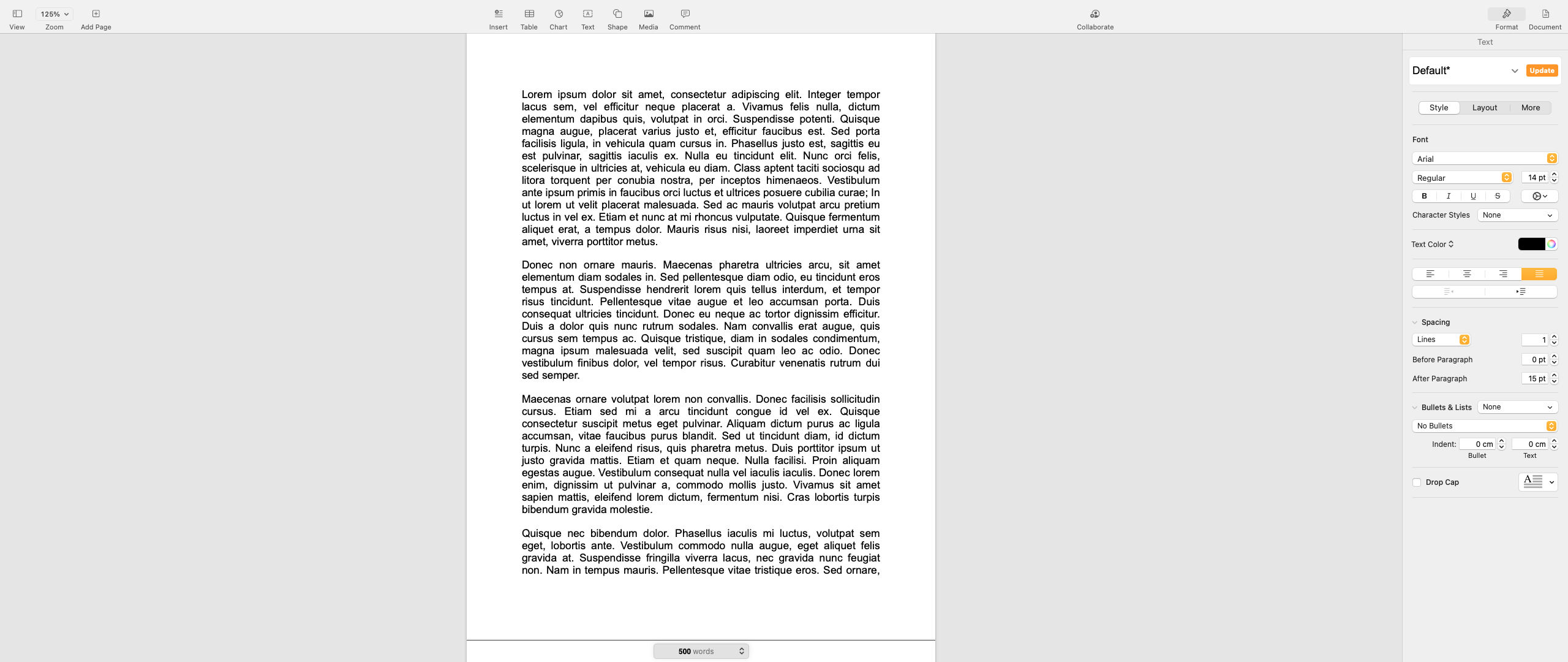How to Write a Book Before Breakfast: Writing Productivity Tips
Can you really write a book before breakfast?
Not the entire book, of course — but if you're serious about becoming an author, you can absolutely write your book before breakfast, day by day. And if you do, you’ll not only finish it faster than you think — you’ll also develop a habit that sets you apart from 99% of people who say they want to write a book but never do.
I’ve written several books and helped more than 130 clients become authors. And here’s what I’ve learned: it’s not talent, free time, or even inspiration that separates aspiring writers from published ones. It’s consistency. It’s strategy. It’s carving out sacred time — usually in the morning — when your mind is sharp, the world is quiet, and the resistance hasn’t had time to wake up yet.
This isn’t just about writing early. It’s about writing before the rest of your day gets a say in who you are. In this article, I’ll show you exactly how to build a high-leverage morning writing routine that allows you to write a professional-quality book — even if you’re a busy founder, executive, coach, or creator.
Why Writing a Book Before Breakfast Works for Busy Professionals
If you're a high-performing professional, you probably don’t feel like you have time to write a book. You’re juggling clients, managing a team, running your business — your calendar doesn’t exactly scream “creative time.”
But here’s the paradox: the people who are the busiest are often the ones who should be writing books. I call this the Author Paradox — and I’ve seen it play out across dozens of clients.
These are consultants, CEOs, physicians, and founders — people making real impact in their industries. They don’t want to write books because they need one more thing to do; they write because they have something to say. And that something needs structure, visibility, and scale — which is exactly what a book provides.
The Brain Science Behind Early-Morning Writing
There’s real science backing this strategy. In the first few hours after waking up, your brain operates in what neuroscientists call “alpha state” — a calm, clear, and creative mode ideal for focus and original thinking. You’re less reactive. Fewer distractions. And your willpower hasn’t yet been depleted by meetings, notifications, and decision fatigue.
Writing before breakfast doesn’t just give you time — it gives you the right kind of time.
It’s also the most defensible block of the day. Nobody books a meeting with you at 6:30 a.m. Your kids aren’t asking for snacks. Your inbox isn’t on fire. That first hour? It’s yours. You can either spend it scrolling… or building your book.
How One Client Finished His Book Without Working Weekends
One of my clients — a leadership coach — came to me with zero time, three kids, and a full client roster. The only time he could find was 6:15 to 7:00 a.m., Monday through Friday. He committed to that routine, working with me on his structure and using our coaching prompts to guide each session.
Twelve weeks later, he had a finished draft of his first book.
What changed wasn’t his availability — it was his discipline and system. He didn’t write for 5 hours on weekends. He didn’t take a sabbatical. He just wrote before breakfast.
That’s the promise: when you write before the world demands your attention, you finally give attention to the one thing that matters — your message.
Start Writing With Purpose: Define Your Book’s Concept
Writing before breakfast works — but only if you know what you’re writing.
Too many aspiring authors waste those golden morning hours staring at a blank page because they haven’t clarified the purpose of their book. Without a clear direction, writing becomes frustrating, and progress slows to a crawl.
That’s why the first step in any productive writing routine — especially if you're writing in short daily sprints — is to define your book concept.
What Is a Book Concept?
A book concept is the strategic foundation of your entire project. It answers four essential questions:
-
What’s the goal of your book?
Are you trying to explain a concept? Tell your story? Persuade your audience to think differently? -
Who is this book for?
Your target audience should be united by a common pain, desire, or question. Your book is the answer. -
What key themes or lessons will your book explore?
These naturally become your chapters. -
What questions must you answer for your reader to succeed?
Think like your audience. What are they confused about? What keeps them stuck?
At Trivium Writing, we help clients build strong book concepts by walking them through a proven framework that forces clarity — before any writing begins. Once the concept is locked in, writing becomes directional, not experimental.
The Real Reason Writers Burn Out Before Chapter 3
It’s not because they “aren’t disciplined.” It’s because they didn’t know what they were trying to say in the first place.
When you sit down to write with a clear book concept, you’re never lost. You’re simply answering one question at a time, one morning at a time. That’s how momentum builds.
And if you're not sure how to develop this structure, you're not alone — that’s where tools like book proposals or a strong working title comes in.
Clarity on your concept doesn’t just make writing easier — it ensures your book will actually matter to the people who read it.
Build Your Morning Writing Routine (And Stick to It)
Here’s a hard truth: most people who say they “don’t have time” to write a book actually don’t have a writing routine — they just try to write when they feel like it, which is almost never.
To make progress, especially as a busy professional, you need a repeatable process that removes decision-making. You don't need inspiration — you need a schedule.
Here’s a simple and powerful routine my clients use (and that I personally use when writing my own books):
The Pre-Breakfast Writing Routine:
-
Wake up early — 30 to 60 minutes before the rest of your world.
-
Skip the phone — no email, no messages, no social scroll.
-
Make your coffee or tea — this is your reward, not a distraction.
-
Open your word processing document — one tab, one file, one mission.
-
Write without editing — get into flow; polish later.
-
Stop on time — knowing tomorrow’s session is coming helps reduce pressure.
I call this the discipline of the browser: no other apps or tabs are allowed during writing time. You’re not researching. You’re not formatting. You’re just writing. That simplicity creates a mental container that helps you stay focused and build consistency.
Want to make it even more effective? Pick a dedicated writing space, put on music you associate with flow, and give yourself a physical or psychological cue that says: this is writing time.
50 Minutes a Day: How Far Can You Really Go?
Let’s talk numbers. Most people drastically underestimate how much they can write in just 50 focused minutes per day.

If you write just 500 words a day, here’s what that looks like over time:
-
1 week = 3,500 words
-
1 month = 15,000–16,000 words
-
3 months = 45,000–50,000 words
-
6 months = a full-length nonfiction or self help book
That’s your rough draft — and it's within reach without quitting your job, going on sabbatical, or sacrificing your weekends.
Quality Comes from Strategy, Not Chaos
You can’t just vomit a stream of consciousness and hope it turns into a good book. You need to know your writing goals for each session.
Ask yourself before each morning:
-
What point am I trying to make today?
-
Which question from my outline or concept am I answering?
-
What example, case study, or story can I add?
This turns your writing into a structured, cumulative process — not a chaotic free-write.
Fiction vs Nonfiction: Same Routine, Different Focus
Whether you’re writing fiction or nonfiction, the routine doesn’t change — but your intentions do.
-
In fiction, you might focus on the main plot, character development, or setting.
-
In nonfiction, you’re often clarifying arguments, answering objections, and leading the reader to a transformation.
And remember: your first draft isn’t supposed to be perfect. It’s meant to exist so you can refine it later. Every successful writer I’ve coached understands this — the goal is momentum, not mastery.
Want to make sure your draft hits the right length? Check out How Long Should a Book Be? for guidance on word counts by genre and purpose.
How to Stay Focused and Productive Every Single Morning
Even with a writing routine in place, staying consistently productive is a challenge — especially when writing a book over weeks or months. The novelty wears off. Resistance creeps in. Distractions multiply.

So how do you stay focused, especially in the early mornings?
Create a Ritual That Triggers Focus
Your environment matters more than you think. Here’s what I recommend to clients — and what I use myself:
-
Same place, same time every morning.
-
A cup of coffee or tea as a reward mechanism — you get to drink it only while writing.
-
Background music or noise (if it helps you concentrate).
-
A clean desk, closed browser tabs, and a visible timer.
This kind of setup acts as a mental cue. You’re not just “writing.” You’re stepping into your identity as an author.

The Secret: Negotiating With Yourself
One mindset shift that helps many writers I coach is this: writing is a negotiation with your future self.
You’re not writing because it’s easy today. You’re writing because your future self will benefit from the hard work you’re doing now. If that means bribing yourself with a croissant or not checking your email until the chapter is done — that’s fine. Make it work for you.
And if the blank page is overwhelming, use a short prompt or answer one of the key questions from your book concept. The goal is to start writing, not to write perfectly.
Don’t Just Write — Write the Right Way (Avoiding Common Pitfalls)
Most books fall apart not because the author lacked motivation — but because the author lacked structure.
Here are the biggest pitfalls I see among new writers — and how to avoid them:
Pitfall #1: Writing Without a Roadmap
Too many writers skip outlining, thinking it stifles creativity. In reality, it gives your ideas a spine. Without it, your book becomes a collection of disconnected thoughts.
A solid outline organizes your content around themes, lessons, or arguments. It also helps you avoid repeating yourself — a mistake many writers don’t catch until it’s too late.
Need help organizing your ideas? Try brainstorming strategies like the ones in How to Brainstorm for a Book.
Pitfall #2: Editing While Writing
Trying to perfect your sentences in the first draft stage is a form of self-sabotage. You should aim for progress, not polish in your rough draft.
At Trivium, we teach clients to draft without judgment. Your first chapter doesn't have to be brilliant — it just has to be written. You can always revise later with fresh eyes, or with feedback from beta readers.
Pitfall #3: Writing Without the Reader in Mind
This is where most people derail: they write for themselves, not for their audience.
Every sentence in your book should serve your reader. Always ask: What does my reader need to know right now? What are they thinking or feeling at this point?
This shift — writing from the reader’s perspective — is what separates a forgettable book from one that makes a real impact.
Looking for more help developing your message for a business audience? Don’t miss How to Write a Book for Leadership.
Self-Publishing: Speed, Control, and Visibility
For most of the entrepreneurs, consultants, and executives I work with, self publishing is the preferred path. It allows you to:
-
Own your content and retain all rights.
-
Launch faster, often within 3–6 months of finishing your draft.
-
Design your own cover, format the manuscript professionally, and start marketing on your terms.
-
Avoid the gatekeepers that slow down traditional publishing.
Self publishing also gives you full control over your marketing plan, which is essential if your book supports your personal brand, business, or lead generation strategy.
That said, it requires upfront investment — for editing, formatting, design, and distribution. But if you treat your book as a business asset, not just a creative project, that investment becomes a growth strategy.
Traditional Publishing: Prestige, Distribution, and Patience
Traditional publishing can offer credibility and access to established distribution channels, but it’s a longer, more competitive process.
To even be considered, you’ll typically need:
-
A strong query letter
-
A well-developed book proposal
-
An existing platform or audience
-
A willingness to wait 12–24 months before publication
For many professionals, that timeline doesn’t align with their business goals — which is why self publishing often wins.
Still unsure? I cover the pros and cons in detail during consultations with clients who are ready to publish but not sure which path to take. The right decision depends on your goals — not just your ego.
Real Results from Writing Before Breakfast
If you’re wondering whether this “before breakfast” routine actually works, let me share a few real-life examples from clients who’ve finished their books using this exact approach.
Case Study #1: The Coach Who Turned Coffee into a Book
One client — a performance coach with a full-time roster and two young kids — committed to writing for 45 minutes each morning with his first cup of coffee. He structured his writing around a list of client questions we brainstormed together.
In 10 weeks, he had a complete first draft of his first book — and he didn’t write a single word on weekends.
Case Study #2: The Consultant Who Wrote Between 6:00 and 6:50 A.M.
A consultant with a packed travel schedule asked me if it was even possible to write a book with her lifestyle. I told her: only if you write when no one else is asking for your time.
She carved out 50 minutes in the early morning, five days a week. We developed a detailed chapter outline, and she stuck to it. By week 14, she had a structured manuscript and was already booking beta readers for feedback.
Case Study #3: The Founder Who Used the Morning to Build Authority
A startup founder used his early mornings to write a book that positioned him as a thought leader in his niche. Not only did he finish the book in under three months — he also repurposed chapters into blog posts, podcast content, and keynote frameworks.
None of these people had more time. They simply used their time differently.
They didn’t wait for motivation. They didn’t write 10,000 words in a weekend burst. They wrote before breakfast, one page at a time — and now, they’re published authors.
Your Book Deserves a Morning Routine
Your book doesn’t need 8 hours a day.
It needs 50 focused minutes. A quiet space. A strong concept. And a decision that writing your book is a priority — not a someday project.
I’ve seen it work over and over again. Founders, coaches, consultants, and creators who started with a simple commitment: write before breakfast. And within weeks, they had the momentum (and manuscript) they’d been dreaming of for years.
If you’re serious about writing your book — and doing it right — my team at Trivium Writing can help. We’ve guided over 130 professionals through the process, from blank page to finished manuscript to published book.
Book a free consultation here and let’s talk about your book idea.
Article by Leandre Larouche
Leandre Larouche is a writer, coach, and the founder of Trivium Writing.

-1.png)

.png?width=352&name=SERVICES%20IMAGES%20(35).png)
.png?width=352&name=SERVICES%20IMAGES%20(31).png)
-1.png?width=352&name=SERVICES%20IMAGES%20(32)-1.png)